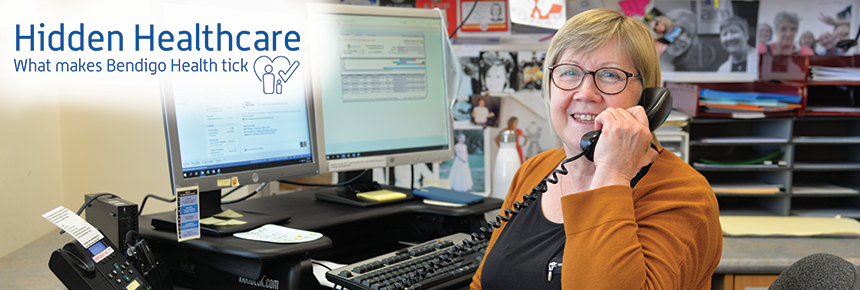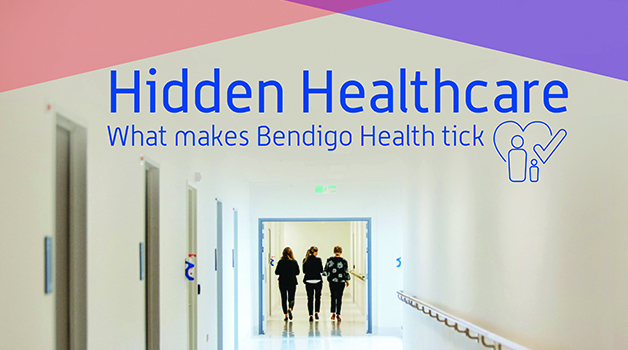 Rhonda Bell is part of the clinical monitoring team at Bendigo Health that supports COVID-19 persons through the isolation process.
Rhonda Bell is part of the clinical monitoring team at Bendigo Health that supports COVID-19 persons through the isolation process.
Rhonda Bell winces when she recalls making a home visit to an elderly, COVID positive man in late July.
Outbreaks were cropping up in regional Victoria and the state was in the midst of the second wave.
“It was pretty frightening. It was a Friday afternoon, someone was required to go and eyeball the patient. I was a bit hesitant at first because I was anxious about how it might impact me and my ability to care for my family,” she said.
Rhonda, who was working for the Hospital Admission Risk Program (HARP) team tasked with the clinical monitoring of COVID patients, spent an hour in the house before the ambulance arrived.
“He was clearly very unwell and working hard to breathe but when I was in there I was just focused on him and his wife,” she said.
Home visits are very rare for the HARP clinicians, who have monitored 96 patients in the Loddon Mallee region via telephone since the pandemic began.
In many ways the HARP team are the last line of defence against the virus, providing access to food, financial and mental health support throughout the lengthy isolation process.
“Some patients really struggled the first few days, wondering why it was them that had contracted COVID. Some of them were cross and desperate to get back to work, but we provided that opportunity to vent and work through issues and explain why they needed to continue isolating,” she said.
The HARP team use oxygen saturation probes and temperature monitors to keep tabs on patients’ health.
Calls are made twice daily and can last up to 15 minutes.
Some calls have the added complexity of language barriers, with five different ethnic groups monitored by HARP.
“Having our in-house interpreters has been really beneficial in helping us get the information across to our culturally diverse community members,” Rhonda said.
Rhonda feels the existing connection Bendigo Health has with the community helped build rapport and trust during the monitoring process.
“Having the local knowledge helped the patients because they knew they were talking to someone local. The information and services we were able to link them to were relevant for them,” she said.
“There was a lot of gratitude from the patients themselves. The rewarding part for me was they were grateful and you could hear the lift in their voice when they answered the phone and they knew it was us.”
Rhonda, a registered nurse with a background in chronic disease management, believes her involvement in the pandemic response has helped her caregiving journey.
“You don’t get to nearly 62 and think you’ve still got some growing to do, but I think that if anything positive is to come out of this experience I have grown and learnt things about myself, good and bad,” she said.
“It was a pretty daunting concept going into the pandemic, I was pretty scared, but since working with the monitoring team I’ve had a focus and it’s made it easier to get through it. It’s that feeling of making a difference.”

For more in our Hidden Healthcare series, click the link below.
Hidden Healthcare